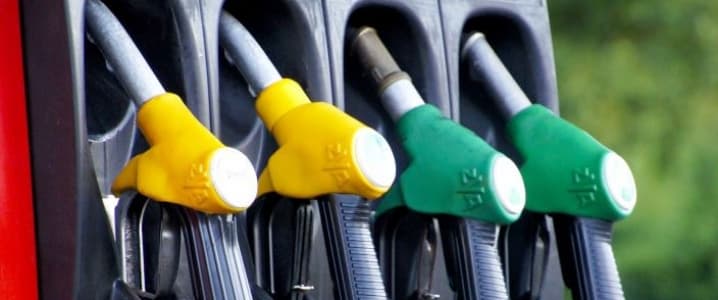Recently Democratic Senator Tom Carper of Delaware said that President Trump was floating the possibility of a fuel tax increase of 25 cents per gallon to pay for his new infrastructure plan. If enacted, this would be the first increase in the federal gasoline tax since 1993.
I confess that I don’t like to pay taxes. Like most people, I feel that we are generally overtaxed. On the other hand, I also don’t like budget deficits. I think it’s irresponsible to push bills onto our children.
Paying for Infrastructure
So, if we deem something important enough to spend money on, we have to find ways to pay for it. Enter the president’s recently proposed $1.5 trillion infrastructure plan. I won’t debate the plan here, but let’s assume it has enough votes to pass. How do we pay for it?
We could further increase the federal deficit. We could cut spending from some other programs. Or we could raise taxes. It will probably come down to a combination of the three choices, but to the extent that taxes need to be increased, I would argue for increasing fuel taxes.
The Case for Higher Fuel Taxes
There are several reasons I would favor higher fuel taxes, which are influenced by my outlook. So let me first explain that.
I am concerned about dependence on a depleting resource that adds pollutants to the environment every year. This dependence poses a risk to national security (albeit less so in recent years because of the shale oil surge). In addition, oil price shocks are a risk to the economy. Therefore, I believe we need to limit our level of dependence on crude oil, and to shift to more sustainable energy sources. Related: Asia Set To Lose 3 Million Bpd Of Oil Production
Raising fuel taxes would help achieve these objectives. Higher fuel taxes could:
• Lower oil demand, which would help preserve our remaining reserves.
• Level the playing field with alternative energy options, without picking specific technology winners.
• Reflect some of the negative externalities that are not currently priced in (e.g., carbon dioxide emissions).
• Encourage mass transit.
Optional Taxes
But there is one other huge reason I favor fuel taxes — and consumption taxes generally. I prefer to have some control over how much I am taxed.
I can make a number of choices to offset the impact of higher fuel taxes. I could get a more fuel-efficient or electric vehicle, carpool or take mass transit to work. Longer term, I could try to ensure that my job isn’t too far from my home, minimizing my commute.
The biggest downside of higher fuel taxes is that they are regressive. In other words, they hit lower-income Americans disproportionately. There are ways to address that (e.g., allowing a tax deduction for lower-income Americans), but that would also potentially lower the revenue such a tax would generate.
Related: How The Fed Could Hammer Oil Producers
But consider that the tax on a gallon of gasoline, relative to the price of the gas, has been declining for years. In 1993, the federal excise tax on gasoline was raised to 18.4 cents per gallon. The average retail price of gasoline in 1993 was about $1.05 a gallon. So, 17.5 percent of every dollar spent on fuel went toward federal taxes.
Today, retail gasoline prices are $2.75 a gallon, but the federal gasoline tax hasn’t increased. That means only 6.7 percent of every dollar spent on gasoline now goes toward federal excise taxes.
Conclusions
I am not a fan of big taxes or big spending. But some level of federal government spending is required, and money has to be available to pay for worthwhile proposals. Increasing gasoline taxes to pay for government spending — such as the president’s new infrastructure plan — would have a number of benefits. The net impact would be a shift in the direction of a cleaner economy, more discretion for citizens over the taxes they pay, and a lower financial burden placed on future generations.
By Robert Rapier
More Top Reads From Oilprice.com:
- Crashing Cushing Inventories Boost Oil Prices
- Are All Car Makers Backing The EV Revolution?
- Venezuelan Oil Production Could Further Collapse On New U.S. Sanctions



















The USA has comparatively low energy taxes and cheap food. North of the border Canada has much more expensive energy due to taxes and food prices often two or three times for the same item in America.
The left demands fuel tax rises to fight "global warming". The right says gouge the people to build infrastructure. Both sides want feeding your family to cost more.
We are ruled by people who hate us.
The left says raise energy taxes to save the planet. The right would slap new levies on fuel to build infrastructure. Either means higher food prices.
We are ruled by people who hate us.